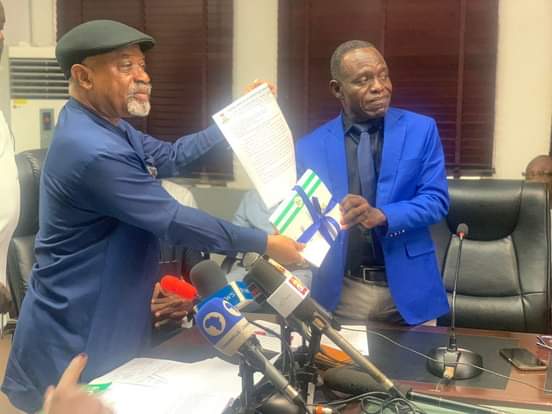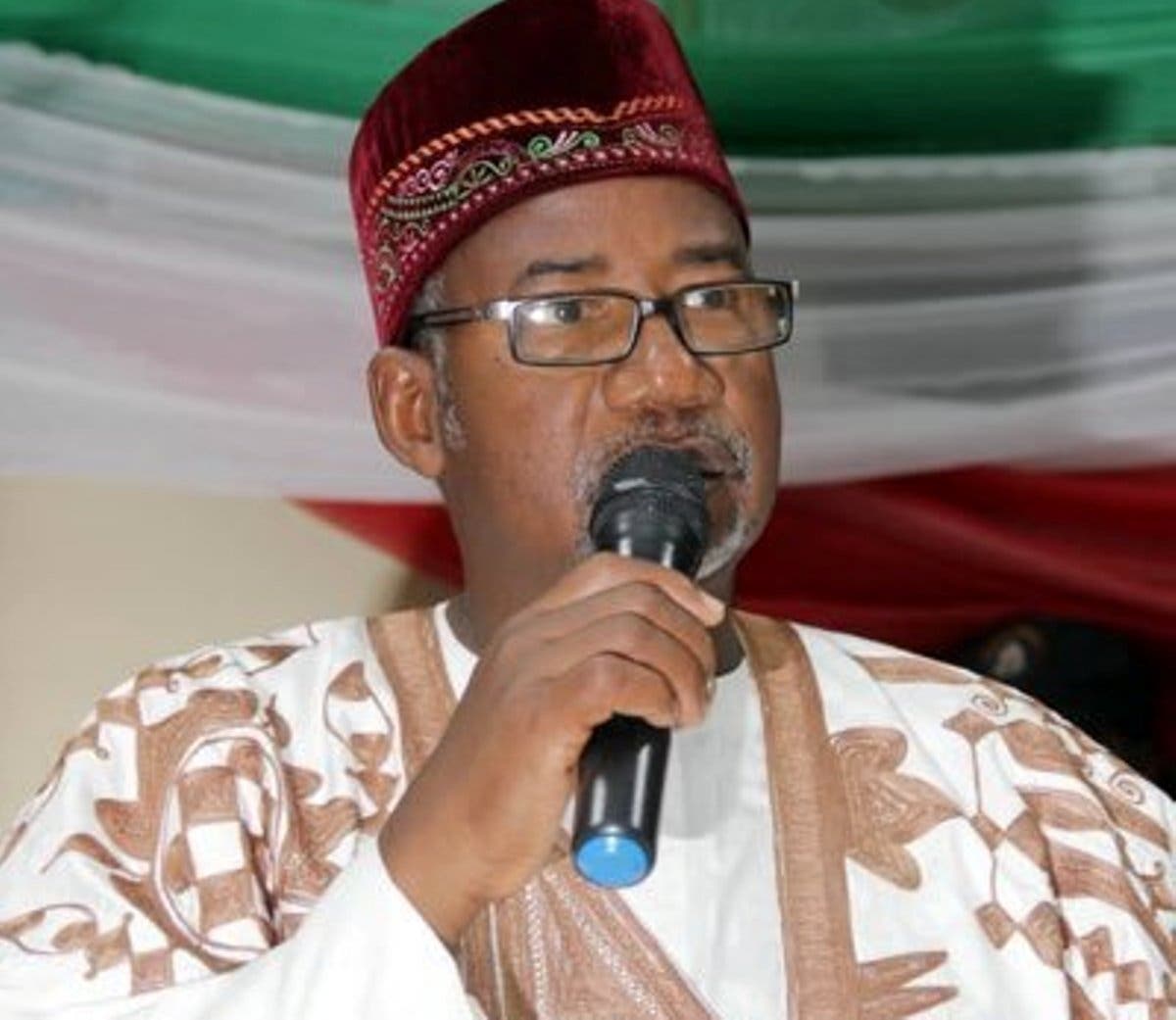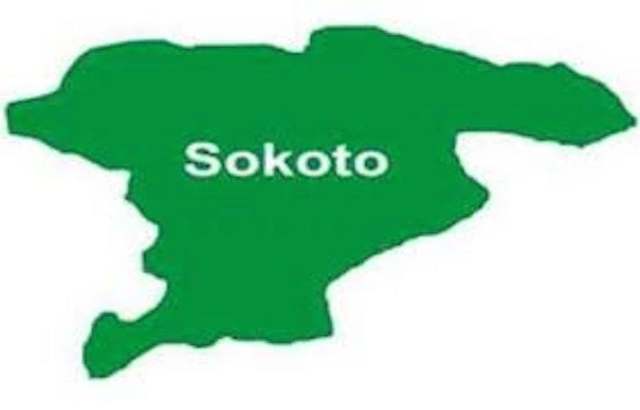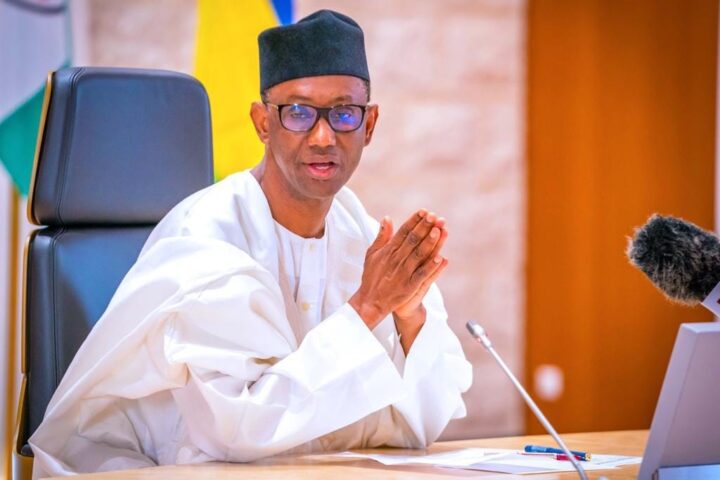In a bid to weaken the influence of the Academic Staff Union of Universities, the Federal Government, on Tuesday, registered two unions in the university system.
The unions are the National Association of Medical and Dental Academics and the Congress of Nigerian University Academics.
The Minister of Labour and Productivity, Chris Ngige, who spoke while presenting the certificates of registration to the two unions explained that the two bodies will exist alongside ASUU.
Recall that ASUU has been on strike since February 14, 2022, as lecturers of public universities protest unpaid allowances and demand better welfare package from the Federal Government.
FG orders CONUA, NAMDA to assume duty
The the Federal Government has approved the registration of a rival group, the Congress of University Academics, CONUA.
This is as the government has directed them to resume work immediately.
The new university based academic union was on Tuesday presented with a Certificate of Registration at the Conference Room of the Ministry of Labour and Employment.
The group has opposed the union’s on-going strike which began on February 14 and has been battling to gain recognition from Federal Government for years now.
Also registered as a trade union is the Nigerian Association of Medical and Dental Academics, NAMDA.
The Minister of Labour and Employment, Chris Ngige, who presented the letters and copies of the Trade Union Act to the groups at his office in Abuja said “The Federal Ministry of Labour and Employment in the discharge of her mandate in the management of Employment Relationships and the Administration of Trade Unions to ensure harmonious industrial relations system in the nation has decided to approve the registration of two (2) more Trade Unions in the Nigerian University Academic Sub Sector.
He said the two unions would operate along with ASUU.
According to the Minister, “The University Sub-Sector is a major development plank of any Nation’s Socio Economic growth. Knowledge they say is Power.
“It may be noted that Section 3(2) of the Trade Unions Act, CAP. T14, Laws of the Federation of Nigeria (LFN) 2004 gives the Honourable Minister of Labour and Employment powers to regroup an existing Trade Union of Workers or Employers. The Section under reference states
“No Combination of workers or employers shall be registered as a Trade Union save with the approval of the Minister on his being satisfied that it is expedient to register the Union either by regrouping existing Trade Union. registering a new Trade Union or otherwise howsoever….
“In view of the above, I Senator (Dr.) Chris Nwabueze Ngige, in the exercise of the power conferred on me as the Honourable Minister of Labour & Employment, do hereby approve the registration of Congress of Nigeria University Academics (CONUA), and Nigeria Association of Medical & Dental Lecturers in Academics (NAMDA)
“These Associations will exist side by side with ASUU in the Nigerian Universities in the spirit and tenets of the International Labour Organisation (ILO) Core Convention nos. 87 & 98 which are respectively on Freedom of Association and Protection of the Right to Organise, and the Right to Organise and Collective Bargaining; as well as the enthronement”
The Minister decried that classrooms in the nation’s Public Universities have been shut and students kept at home by the strike action of ASUU despite series of engagements to resolve the trade dispute by the Federal Government.
He said, “In line with the provisions of the Trade Disputes Act, CAP. TS, Laws of the Federation of Nigeria, 2004, this Strike was apprehended & Conciliations were done in this Ministry on February 22, 2022, and March 1, 2022.
“However, all efforts at conciliation failed resulting in the transmission of the trade dispute to the National Industrial Court of Nigeria (NICN) for adjudication in line with the statutory trade dispute resolution processes.
“At the NICN, an Interlocutory Injunction Order was obtained asking the Union to get back to work while the substantive suit is being heard; an order ASUU leadership and members refused to obey. Interestingly, a lot of university teachers in the public universities had indicated their willingness to get back to work while negotiations continue”
Ngige said the two unions applied for registration since 2018 due to irreconcilable differences as they do not believe in recurring strikes as the solution to every welfare agitation.
“They also accused the ASUU executive of non rendition of account of Incomes and Expenditure for years. The Ministry of Labour and Employment set up a committee to look into the merit of their application. The committee saw merit in the application and recommended approval for the registration of the Association by the Registrar of Trade Unions (RTU) since 2020. But for the advent of COVID-19 pandemic and the recurring ASUU Strike, this would have been done.
“NAMDA, Like their colleagues in CONUA, they had applied for Registration as Medical Teachers in the University system under various groups.
“They include those Medical Doctors doing Pre- clinical teaching of basic medical courses and Honorary Consultants teaching clinical students in.”
Ngige disclosed that the new unions will be entitled to all rights and privileges accruing to such academic associations including but not limited to receiving check off dues of their members in accordance with Section 17 of the Trade Unions Act, membership in the Nigerian University Pension Management Company Limited (NUPEMCO) and being on CONUAS Salary Structure/Scheme.
“They are equally entitled to Earned Academic Allowances (EAA) and all other allowances attached thereto.”
While receiving the letter of approval on behalf of the union, CONUA National Cordinator, Dr. ‘Niyi Sunmonu described the registration of the body as historic.
Dr. Sunmonu in a statement said, “The registration of the Congress of University Academics (CONUA), as a Trade Union in the Nigerian university system, is monumentally historic.
“The hurdles we have faced to get here, since 2018 when we submitted our application for registration, have been seemingly insurmountable. The registration is therefore the validation of the power of the human will. It asserts the value of courage, initiative, focus, tenacity, patience, forbearance and persistent positive thinking.
“We are immensely grateful to the Honourable Minister of Labour and Employment, Dr. Chris Ngige, and his team of diligent staff for insisting on merit, due process and thoroughness all through the processing of our application for the registration of CONUA.
“The very strict and dispassionate review of our application brought out the best in the membership of the Union.
“We regard the registration of CONUA as a sacred trust, and pledge to reciprocate by devoting ourselves unceasingly to the advancement of university education in this country. We would make the details of our programmes available to the public in due course.”
He further said, “We are also deeply grateful to the numerous personalities and well-wishers whose good counsel and concrete actions have facilitated the success we have witnessed today. We believe in the saying that to whom much is given, much is expected. We would therefore constantly strive to make them all proud of CONUA.
“We appreciate the entire membership of the Union for believing in the righteousness of the CONUA cause and for believing in the leadership of the Union, and thereby remaining salutarily steadfast, even when disconcerting and demoralising situations arose.
“In this journey, the invaluable role of the media cannot be discounted. We are truly grateful to the media, and look forward to further mutually beneficial interactions as we strive for the development of this nation.”
He gave the assurance that they would work to ensure that the nation is not traumatised again by academic union dislocations in the country’s public universities.
“Above all, we are absolutely grateful to Almighty God for granting us this grace.”
Recall that public Universities in the country have been shut down since February,14, ASUU proceeded on one month warning strike.
ASUU reacts
The Academic Staff Union of Universities, ASUU, has said the registration of two new trade unions by the government for academic staff in the university system is inconsequential and does not pose any threat to its existence.
The National President of ASUU, Prof. Emmanuel Osodeke, stated this in a chat with Vanguard while reacting to the registration of the two new unions.
“That does not in any way affect us. We are a disciplined and focused union and we know what we are doing and what we are after. Let them register as many unions as they like. That is inconsequential as far as we are concerned. We are not also in any way threatened. The sky is big enough for birds to fly.
“We know our members, we know our strength and we also know what our vision and mission are. Our members are not saboteurs or bootlickers . Our struggle is for a better educational system in the country. If the system is good, all of us will benefit and it is not only ASUU members’ children and wards that are going to benefit from improved funding and the provision of better facilities in our institutions,” he said.
Osodeke, who also reacted to the allegation by the Presidency that ASUU members are complicit in the corrupt practices in the university system, described such as unfounded.
“As a union, we have been championing transparency and accountability in the university system. That is why we are calling for the adoption of the University Transparency and Accountability Solution, UTAS, as the payment platform in the university system. Those indicted for misappropriating over N100 billion through their IPPIS, are they our members?
“Moreover, one of our demands is that Visitation Panels be set up to probe the activities and the finances of universities in the country. If we don’t want corruption stamped out, we would not be asking for that, ” he explained.
CONUA: Netizens kick, accuse FG of ‘complicating issues’
Following the presentation of certificates of registration to two new university based unions, Nigerians on social media faulted the move describing it as a plan to “intimidate” the Academic Staff Union of Universities.
A Facebook user, Harry Smith, asked, “Why the intimidation? Why not settle them(ASUU) and give them what belongs to them?”
Another Facebook user, Oguntuase Opeyemi said, “ I think the Federal government is just compounding the issues on ground by registering the two new academic unions, the fact that the two unions wrote letters five years ago for their registrations doesn’t mean you should register them amidst the unsettled Issues on ground with the ASUU.
“Though you said they have equal right with ASUU and doesn’t stop the ongoing negotiation with them but are you trying to register them as an alternative or what?
“What about the financial side of it? When you’re still owing the academic staff and not granting their request. I just don’t understand what the Federal Government is trying to do.
Williams Ekohmen also typed on Facebook, “To an extend, federal government foolishly compound more problems instead of solving current problem they added more problems, the new Union must definitely come up with new demand in the future that will be worst than present one”.
Nigerians on Twitter were also not left out.
A tweep, Ashraf Babagana tweeted, “ The essence of government in the first place— is to solve problems but Nigeria’s governmentt are creating problems where there are none as well as compounding existing problems just for personal gains. We definitely need restructuring or secession and not election. We are finished.”
Another tweep, @oyefad, fumed, “ This is arrant nonsense… When did it become the government’s duty to set up organisations that is supposed to fight (against the said government) for the workers right? When are we going to stop being diabolical in our strategies in this country?!!!”.
Buhari accuses striking varsity unions of complicity
As the ongoing strike by the Academic Staff Union of Universities enters its eighth month, President Muhammadu Buhari said corruption in the education sector is undermining the Federal Governments’ investments.
This was as he challenged the notion that the incessant strikes, especially by unions in tertiary education, often indicate gross underfunding, saying “those who go on prolonged strikes on flimsy reasons are no less complicit.”
Buhari was speaking at the Fourth National Summit on Diminishing Corruption in the Public Sector held at the State House, Abuja, on Tuesday.
This comes about eight months after ASUU, on February 14, embarked on a one-month warning strike.
Other associations such as the Senior Staff Association of Nigerian Universities, Non-Academic Staff Union of Allied and Educational Institutions and National Association of Academic Technologists later followed suit, shutting down their activities in universities nationwide.
Although SSANU and NASU have since called off their industrial action, ASUU is yet to. This stems from, among other things, the FG’s refusal to acquiesce to the payment of workers’ salaries for the period of the strike.
Speaking further, Buhari said monies disbursed to the ministry of education alone constitute only a fraction of the government’s total commitment to the sector.
Therefore, he called on pundits to widen their scope to include allocations to the Universal Basic Education, transfers to TETFUND and refunds from the Education Tax Pool Account to TETFUND etc.
He also noted that corruption in the expenditure of internally-generated revenue of tertiary institutions had not received due attention from stakeholders.
Therefore, he urged stakeholders to advocate transparency in the IGRs of educational institutions and how such funds are expended.
Buhari said, “This year’s summit will mirror how corruption undermines educational policies and investments, and creates an unfriendly learning environment for our youths.
“Incessant strikes especially by unions in the tertiary education often imply that government is grossly underfunding education, but I must say that corruption in the education system from basic level to the tertiary level has been undermining our investment in the sector and those who go on prolonged strikes on flimsy reasons are no less complicit.
“The 1999 Constitution places a premium on education by placing it on the Concurrent List, thereby laying the responsibilities of budgeting and underwriting qualitative education on both the Federal and State Governments.”
He argued that monies disbursed to the Education Ministry do not reflect the totality of the government’s allocation to the sector and should not be construed as such.
“The total education budget for each year is, therefore, a reflection of both federal and state budgets and should be viewed with other financial commitments in their totality.
“The allocation to education in the federal budget should not be considered via allocation to the Federal Ministry of Education and also academic institutions alone but should include an allocation to the Universal Basic Education, transfers to TETFUND and refund from the Education Tax Pool Account to TETFUND etc.
“I am aware that the aggregate education budget in all the 36 states of the Federation and that of the Federal Government, combined with the internally generated revenues of the educational institutions themselves are also a subject that requires the attention of critics of government funding of education,” he said.
The President also noted the need for closer scrutiny of funds used by tertiary institutions, decrying what he called an “over bloated payroll” in many schools.
He said, “Government will continue to fund education within realistically available revenue, but stakeholders, including the media, should equally advocate for transparency in the amount generated as internally generated revenue by educational institutions and how such funds are expended.
“Corruption in the expenditure of internally generated revenue of tertiary institutions is a matter that has strangely not received the attention of stakeholders in tertiary education, including unions.
“I call on stakeholders to demand accountability in the administration of academic institutions and for unions to interrogate the bloated personnel and recurrent expenditure of their institutions. Let me also implore the Unions to work with the government to put faces and identities to names on the payroll.”
While noting that the government cannot fund education alone, Buhari tasked academics to attract endowments, research and other grants to universities, polytechnics and colleges of education similar to what obtains in other countries.
He congratulated the sole winner of this year’s Public Service Integrity Award, Daniel Amah, commending the ICPC Chairman, Prof. Bolaji Owasanoye, the Secretary to the Government of the Federation, Boss Mustafa, and the Registrar of JAMB, Prof. Ishaq Oloyede, for organising.
Presenting the findings of the Ethics and Integrity Compliance Scorecard 2022, former Chairman of the Independent National Electoral Commission, Attahiru Jega, revealed that none of the government ministries, departments and agencies evaluated attained full compliance.
He noted that out of the 260 assessed based on their administrative systems, only 61 MDAs had substantial compliance. 120 MDAs had partial compliance, 63 MDAs had poor compliance and 64 MDAS were non-responsive.
Jega, therefore, recommended that the FG implements consistent reforms and upgrading of its digital revenue and payment platforms, including the TSA, GIFMIS,
IPPIS etc., to safeguard it from the activities of hackers, fraudsters, and intruders and guarantee its integrity in the wake of increasing violations of these platforms.
The former INEC chief also urged the government to “enhance the enforcement of the statutory provisions on the rendering of periodic and annual audited reports by MDAs to the Office of the Auditor-General of the Federation and the Public Account Committee of the National Assembly; by swiftly applying commensurate sanctions in the applicable statutes.”
Nobody will traumatise Nigeria again with union disorders— CONUA chair
Chairman of the newly registered Congress of Nigerian University Academics (CONUA), a faction of the Academic Staff Union of Universities (ASUU) Dr Niyi Sunmonu has vowed the new body will ensure that Nigeria is not traumatised again by academic union dislocations in public universities.
He spoke after the issuance of a certificate of registration to the new body by the Federal Government on Tuesday.
Sunmonu, in a statement to newsmen in Osogbo, said the registration of the CONUA, as a trade union in the university system, is monumentally historic.
Yellow Page mobile
He said the body crossed lots of hurdles since 2018 when the application was submitted, noting that the registration of the body is the validation of the power of the human will.
He commended the Minister of Labour and Employment, Dr. Chris Ngige, and his staff for insisting on merit, due process and thoroughness all through the processing of the application for the registration of CONUA.
According to him: “We regard the registration of CONUA as a sacred trust and pledge to reciprocate by devoting ourselves unceasingly to the advancement of university education in this country. We would make the details of our programmes available to the public in due course. For now, we are giving the assurance that we would work to ensure that the nation is not traumatised again by academic union dislocations in the country’s public universities.
“We are also deeply grateful to the numerous personalities and well-wishers whose good counsel and concrete actions have facilitated the success we have witnessed today. We believe in the saying that to whom much is given, much is expected. We would therefore constantly strive to make them all proud of CONUA.
“We appreciate the entire membership of the Union for believing in the righteousness of the CONUA cause and for believing in the leadership of the Union, and thereby remaining salutarily steadfast, even when disconcerting and demoralising situations arose.”
Gbajabiamila Meets Buhari Over ASUU Strike, Submits Report
Worried by the lingering Academic Staff Union of Universities (ASUU) strike, the Speaker of the House of Representatives, Femi Gbajabiamila, on Tuesday met with President Muhammadu Buhari.
Gbajabiamila led the leadership of the House to see the President at the Aso Rock Presidential Villa in Abuja, the nation’s capital.
During the meeting, he present some recommendations to Buhari as part of the lawmakers’ contributions to ending the industrial rift between the aggrieved varsity lecturers and the Federal Government.
While addressing State House correspondents after the meeting, the Speaker said the lawmakers are hopeful because the President had granted a good listening ear and accepted the details of the report.
Gbajabiamila disclosed that another meeting has been scheduled with the President for Thursday, the 6th of October.
He further noted that the House leadership came to the Villa after a series of engagements with ASUU and, having submitted the recommendations to the President, would be awaiting his final decision.
“After a series of engagements with ASUU, the leadership came up with recommendations to the President for approval. They came to discuss with the President, the recommendations,” Gbajabiamila said.
“The president had a good listening ear; he accepted the details of the report. We have another meeting on Thursday to take a final decision after he has digested the report.
“We are done with our meeting with ASUU. We are hopeful because we had a good engagement and he accepted the report and we clarified a few grey areas.”
ASUU has been on strike since February 14.
In August, the union declared a “total and indefinite” extension of its industrial action, noting that the government has failed to satisfactorily meet its demands.
The academics are seeking improved welfare, revitalisation of public universities, and academic autonomy among other demands.
One bone of contention for academics is the non-payment of university revitalisation funds, which amounts to about N1.1 trillion.
But the Federal Government has said it doesn’t have the money to pay such an amount, citing low oil prices during the Muhammadu Buhari administration.







